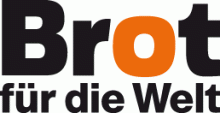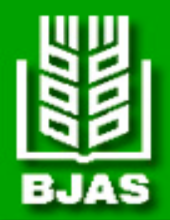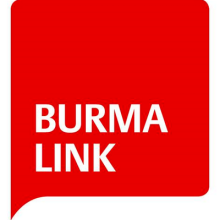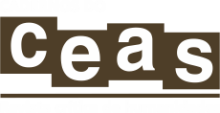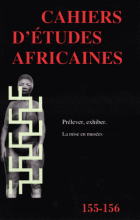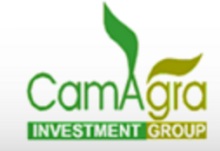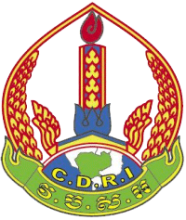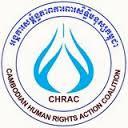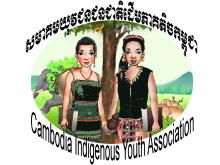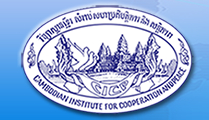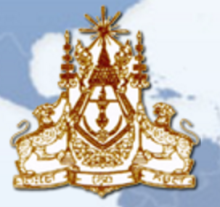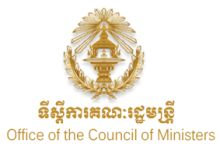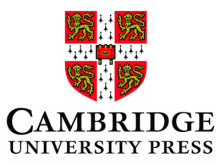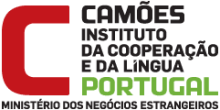The Land Library includes resources from more than 1,900 national and international information providers. Learn more about the organizations and institutions using the Land Portal to share their open-access research, data and stories.
Broadening Access and Strengthening Input Market Systems (BASIS) Collaborative Research Support Program
The Broadening Access and Strengthening Input Market Systems (BASIS) Collaborative Research Support Program (CRSP) carries out and disseminates collaborative, policy-oriented research that addresses rural poverty by making markets work for all. The website hosts research reports, working papers, briefs and trip reports.
Brookings Institution Press
The Brookings Institution Press is the book- and journal-publishing arm of the Brookings Institution. All new Brookings Press titles are published in a variety of formats, and the Press is working vigorously to digitize its extensive backlist. With an eye to serving the global marketplace and increasing the worldwide impact of its publications, the Press aggressively promotes and distributes its work in international as well as domestic markets, licenses translation rights to foreign publishers, and partners with digital aggregators and e-retailers. The Press also provides sales and distribution services to a number of other research organizations around the globe.
Brot für die Welt
Bread for the World – Protestant Development Service is the globally active development and relief agency of the Protestant Churches in Germany. In more than 90 countries all across the globe we empower the poor and marginalised to improve their living conditions. Key issues of our work are food security, the promotion of health and education, the access to water, the strengthening of democracy, respecting human rights, keeping peace and the integrity of creation.
Our guiding principles
Our work is rooted in the faith that bears witness to the world as God’s creation, in the love that encounters the Lord precisely in our disenfranchised and poorest neighbour, and in the hope that acts in accordance with God’s will in expectation of a just world. Bread for the World – Protestant Development Service considers itself part of the global Christian Community. We seek the cooperation with churches and church agencies throughout the world and assume our responsibility in ecumenical networks.
Our Work
The work of Bread for the World – Protestant Development Service primarily focuses on the support of projects in the countries of the Global South. An essential feature of our projects is the close and continuous cooperation with local, often church-related partner organisations. Upon request, Bread for the World provides them with specialists and volunteers. Through lobbying, public relations and education in Germany and Europe we seek to influence political decisions in favor of the poor and to raise awareness for the necessity of a sustainable way of life.
Bulgarian Journal of Agricultural Science
From the beginning of 1995 the Agricultural Academy in Bulgaria is publishing Bulgarian Journal of Agricultural Science (BJAS)® - the first agricultural scientific journal in Bulgaria for fundamental and applied researches, published entirely in English language, and one of the few such journals in Central Europe.
Bulgaria is an agricultural country with traditions and long standing experience in the development of agrarian science and production. BJAS, printing in English, in accordance with international standards,provides possibilities for Bulgarian agricultural science to enter adequately into the worlds scientific field, to find its place in reviews, abstracts and electronic means for processing and transfer of scientific information. Besides scientific articles provided in Bulgarian universities and research institutes, BJAS publishes also articles from Eastern Europe and other countries all over the world. The Editorial board of the journal includes prominent scholars from Germany, United Kingdom, Austria, Italy, Spain, Japan, Greece, Bulgaria and other countries.
Bureau for Food and Agricultural Policy
The Bureau for Food and Agricultural Policy (BFAP), founded in 2004, is a non-profit organisation. BFAP exists with the distinct purpose to objectively inform and support decision-making by stakeholders in the agro-food, fibre and beverage sectors of Africa. It provides independent, rigorously tested, research-based market and policy analyses.
Burma Environmental Working Group
The Burma Environmental Working Group (BEWG) brings together Burma focused ethnic environmental and social organizations. Each member organization monitors Burma development policy and advocates for alternative development policies meeting their specific traditional and comprehensive understanding of local sustainability. BEWG provides a forum for member organizations to combine the successes, knowledge, expertise and voices of ethnic peoples in pursuit of not just local livelihoods, but sustainable and peaceful national, regional and international development policy. Members collaborate on research, reporting, advocacy campaigns, capacity-building initiatives and policy formulation. BEWG also networks with non-member organizations to encourage harmony and diversity in its own activities as well as strengthen democracy and civil society in Burma/Myanmar.
Burma Issues
Burma Issues (BI) was formed in 1990 as a private non-profit organisation devoted to peacefully addressing Burma's struggle for human rights and democratic rule. BI is unique in that we focus on the marginalized communities living in the war zone of Burma as our target group for building a peace based on justice for everyone. Our approach is based on concepts of empowerment of these marginalized communities. In 2002 the Peace Way Foundation was formed and registered with the Royal Thai Government. It serves as an umbrella organization for Burma Issues and as a link between the grassroots people of Burma and the regional and international community.
Aim: To try and participate in building up a people's movement that is capable of carrying out the long-term struggle necessary to bring a true and lasting peace to Burma
Objectives 1) To systematically document for analysis the events of the past and present through a documentation centre, in order to plan for a better future. This will focus on information for the internal movement and for external supportive campaigns. 2) To build up activists who have a vision for true change in Burma, are responsible and disciplined and are clear in the nature of their commitment for the long term struggle 3) To encourage grassroots people to lead the struggle for social, economic and political change in Burma 4) To build up international awareness and support for the struggle in Burma by acting as a bridge between the grassroots people and the international support community in such a way that the grassroots people help international support groups focus actions on the most critical issues which prolong the country's cycle of war
Burma Link
Burma Link is a non-profit non-governmental organisation that was founded by foreign specialists in the field of ethnic relations and international development together with refugees and migrants from Burma in August 2012 in Mae La refugee camp, Thailand. We set up Burma Link to centralise information on Burma’s conflict and displacement situation and to amplify the voices of local organisations working towards free and peaceful Burma.
The initial idea of creating an informational website collecting information and voices of local civil society groups gradually developed into establishing a non-profit organisation that seeks to amplify Burma’s marginalised voices from the ground through projects such as publishing books and research reports based on the stories and voices of Burma’s ethnic nationalities and displaced people, drawing attention to these untold stories and making recommendations to policy makers and stakeholders.
As part of our ongoing project, we publish life stories and in depth interviews with a wide variety of civil society actors as well as soldiers and leaders from different Ethnic Armed Organisations (EAOs) that work towards a Federal Union of Burma. We have been publishing life stories on our English website since April 2013 and Burmese website since January 2014. In March 2016, we published a book of life stories, “Lives on the Line: Voices for Change from the Thailand-Burma Border,” after successfully raising the funds for the project through an online crowdfunding platform. The book brings stories of Burma’s ethnic nationalities from the border area to local and international audiences in Burmese and English.
In 2015, we collaborated with Burma Partnership on a briefing paper “Voices of Refugees – Situation of Burma’s Refugees Along the Thailand-Burma Border,” which was published online in English on April 27, and in Burmese on June 20. All the 20 interviews for the paper were conducted by Burma Link members in different Thai border refugee camps. Burma Link was also one of the organisations to produce the 2015 Submission to the United Nations Universal Periodic Review (UPR) on Refugees and Displaced Persons (Burma/Myanmar). In 2016, we collaborated with the Human Rights Foundation of Monland (HURFOM) and Burma Partnership to produce a report, “Invisible Lives: The Untold Story of Displacement Cycle in Burma,” bringing attention to the plight of Mon IDPs.
Burma Link was legally registered as a non-profit organisation in August 2013. Burma Link operates with volunteer staff members and local interns, all of whom are deeply committed to our Vision, Mission and Values. In addition, a Governing Board made up of four local and international professionals representing Burma Link’s members provides overall sanctioning of Burma Link’s operation.
Business Daily Africa
About Us
BDAfrica carries a selection of stories from the newspaper Business Daily, published out of Nairobi by the Nation Media Group, as well as exclusive web-only content.
For details of the much fuller range of business and feature coverage available in the newspaper, please see the website section: In the Newspaper.
You may subscribe directly to the full newspaper by contacting kkyaka@nation.co.ke.
A free daily newsletter is available for subscription here signup.bdafrica.com.
Cadasta Foundation
Reviving Documentation of Property Rights
Cadasta Foundation is dedicated to the support, continued development and growth of the Cadasta Platform – an innovative, open source suite of tools for the collection and management of ownership, occupancy, and spatial data that meets the unique challenges of this process in much of the world.
We provide the tools and resources for testing new approaches to capturing land and resource rights data and promoting the adoption of ‘fit-for-purpose’ technology and processes. Incorporated as a non-profit, federally-recognized 501(c)(3) organization, Cadasta Foundation aims to simplify, modernize, and expedite the documentation of land and resource rights in places where it does not exist today.
Our Approach
- A secure, cost effective global platform for the direct capture and documentation of land and resource rights.
- A collaborative ecosystem of partners using the Cadasta Platform to protect land and resource rights.
- A research and resource portal for the open sharing of knowledge, best practices and the use of our tools.
Cadernos do CEAS
Desde que foram lançados (1969), os Cadernos do CEAS buscam discutir criticamente temas diversos, que se relacionam com questões sociais, sempre na perspectiva de analisar a realidade brasileira em sua inserção internacional, apontando as iniciativas das classes trabalhadoras como caminho para a superação das situações de opressão e dos seus traços mais perversos, com o resgate da gigantesca desigualdade social que torna o Brasil um caso único e extremo entre os países industrializados.
A qualificação acadêmica da revista será acompanhada do propósito de ir ao encontro de novos leitores e acolher em suas páginas indistintas gerações de intelectuais (novos e consagrados). Enfim, reafirma-se, aqui, a linha editorial comprometida com leituras críticas da realidade e aberta à discussão das novas temáticas colocadas pela dinâmica social, assegurando aos Cadernos o espaço e respeito com os quais sempre contou.
Cahiers Agricultures
Cahiers Agricultures est une revue scientifique, principalement francophone, sur les agricultures du monde, leur fonctionnement, leur évolution et leur place dans les sociétés. Elle s’adresse à tous ceux – chercheurs, agents de terrain, enseignants – qu’intéresse une réflexion d’ensemble sur le monde agricole et son avenir.
Cahiers d’Études Africaines
The Cahiers d’Études africaines, founded in 1960, have ever since favored the publication of previously unpublished articles, original investigations along with confirmed or emerging theoretical contributions. While encouraging interdisciplinary perspectives, the journal concentrates on anthropological and historical research on Africa and societies linked to Africa throughout the world. The publication of articles in French and English contributes to the international recognition of the journal.
Issues before 2000 are freely accessible on persee.fr. Subscriptions are managed by École des Hautes Études en Sciences Sociales.
Journal supported by the Institut des Sciences Humaines et Sociales (CNRS).
CAMAGRA Investment Group Ltd
Camagra Investment Group Ltd and its sister company, Camtree Corporation have initiated a large scale operation of Eucalyptus and Acacia plantations in Cambodia. The reforestation activity started in 2003 and now stands as the largest Acacia and Eucalyptus commercial plantation in Cambodia. The target market of the plantations is directed for the pulp industry in Japan and China and towards the rapidly expanding alternative energy sector.
Cambodia, as the target site, inhabits most of the principle elements for a very lucrative project in the agricultural sector. Tropical climate, competitive labor costs, low land costs and excellent proximity to two of the major global markets (Japan and China) from the supply point of view support great advantages in relation to the location of Cambodia. The strong demand of raw material to both the paper and energy sectors also places our Agricultural Businesses to great advantage in terms of export of product.
Camagra and Camtree have already acquired and grow plantations on about 7000 hectares and the companies' shareholders intend to expand its operations by an additional 20,000 ha in the next few years. The companies' shareholders also intend to set up, in the following months, a chipping mill near the Sihanoukville International Port that will serve its own plantations as well as the local farmers’ plantation crops.
CamAgra and Camtree act as successful enterprises on many levels. From an ecological and social stand point they are directly involved in building and putting into action systems for an environmentally sustainable and socially conscious business. They are a part of the creation and implementation of positive and sustainable changes in the world today. CamAgra and Camtree plantations are situated on lands that were long ago deforested and stripped of any productive value. At the same time, our plantations will be actively binding carbon from the atmosphere thus helping to reduce global warming.
As socially compassionate businesses, CamAgra and Camtree benefit people in many ways. People living at the lower income margins in rural areas that have traditionally had very few employment opportunities accomplish most of the work done on the plantations. By creating new income sources in these areas, Camagra and Camtree will be helping to improve the lives of working families. The companies employ about 350 permanent workers and provide them houses on site, two schools for their children on a daily basis including transportation back and forth to the schools, medicine, food and attention to all their other needs. The contribution to the society is in the companies' high priority and we are doing our best to fulfill this policy.
Câmara dos Deputados
O Papel da Câmara dos Deputados
O Poder Legislativo cumpre papel imprescindível perante a sociedade do País, visto que desempenha três funções primordiais para a consolidação da democracia: representar o povo brasileiro, legislar sobre os assuntos de interesse nacional e fiscalizar a aplicação dos recursos públicos.
Nesse contexto, a Câmara dos Deputados, autêntica representante do povo brasileiro, exerce atividades que viabilizam a realização dos anseios da população, mediante discussão e aprovação de propostas referentes às áreas econômicas e sociais, como educação, saúde, transporte, habitação, entre outras, sem descuidar do correto emprego, pelos Poderes da União, dos recursos arrecadados da população com o pagamento de tributos.
Assim, a Câmara dos Deputados compõe-se de representantes de todos os Estados e do Distrito Federal, o que resulta em um Parlamento com diversidade de idéias, revelando-se uma Casa legislativa plural, a serviço da sociedade brasileira.
Cambodia Development Resource Institute
1. Our vision
Inclusive and sustainable development through independent policy research and developing capacity.
2. Our vision For Cambodia
Vision of CDRI, Cambodia Development Resource Institute, is for a peaceful, prosperous and more equitable Cambodia.
3. Our mission
To contribute to Cambodia’s sustainable development and the well-being of its people through the generation of high quality policy research, knowledge dissemination and capacity development.
4. Our core values: MERIT
We create the professional conditions that nurture merit.
We foster excellence, as a professional and personal habit.
We practice a culture of respect and responsibility.
We pledge to live and act with independence and integrity.
We build deep trust through transparent operations and teamwork, capable of achieving the mission and vision of the Institute.
Cambodia Ministry of Environment
The Ministry of Environment is a government ministry of Cambodia.
Cambodian Center for Human Rights
CCHR is a leading non-aligned, independent, non-governmental organization that works to promote and protect democracy and respect for human rights – primarily civil and political rights - in Cambodia. We empower civil society to claim its rights and drive change; and through detailed research and analysis we develop innovative policy, and advocate for its implementation.
Vision
Our vision is of a non-violent Cambodia in which people enjoy their fundamental human rights, are treated equally, empowered to participate in democracy, and share the benefits of Cambodia’s development. We desire rule of law rather than impunity; strong institutions rather than strong men; and a society in which diversity is harnessed rather than punished.
Mission
CCHR is an advocacy organization facilitating grassroots participation by empowering local communities through education of their civil and political rights. It facilitates constructive interaction between Cambodian civil society and the international community in order to advocate the progressive realization of Cambodian human rights.
Values
We expect our staff to share certain values that reflect of vision and purpose, these include:
- Equality – we value diversity and cross cultural understanding
- Integrity – we value honesty, diligence and hard work
- Transparency – we value openness and accountability
- Creativity – we value new ideas and innovative solutions
Cambodian Human Rights Action Committee
The Cambodian Human Rights Action Committee (CHRAC) is a coalition of 22 NGO members. It was created in Phnom Penh in 1994 by a group of local NGOs and associations working for the promotion and the respect of human rights, democracy and rule of law in Cambodia.
Cambodian Human Rights and Development Association
The Cambodian Human Rights and Development Association (ADHOC) was founded by a group of former political prisoners in December 1991 after the signing of the Paris Peace Agreements on October 23, 1991. ADHOC is an independent, non-partisan, non-profit and non-governmental organization. It has different levels of governance: a General Assembly which is convened every three years to elect a President and Secretary General, and a Board of Advisors which meet annually.
ADHOC is tasked to address the absence of basic rights, freedoms and liberties in Cambodia by providing people with knowledge and understanding of human rights, law and democracy and of how to defend these rights and freedoms themselves.
ADHOC’s Vision
A society that respects human rights and law.
ADHOC’s Mission
Strengthen the capacity of ordinary citizens, enable them to defend their own rights and lobby and advocate for better governance and full respect for human rights that every citizen can practice.
ADHOC’s Goals
To strengthen the capacity of ordinary citizens to claim their rights and to assist victims of human rights abuses in their quest for justice.
To help ordinary citizens to assert their human rights fully by lobbying and advocating for improvement and enhancement of laws, institutions and law enforcement.
Cambodian Indigenous Youth Association
The indigenous people in Cambodia are living in the remote areas and highlands of Cambodia, especially in the Northeast of Cambodia, including Ratanakiri, Mondulkiri, Kratie, and Preh Vihear, and in the southwest along the cardamom mountains. These provinces are located far from Phnom Penh, the capital of Cambodia. The infrastructures in these locations are very poor, but they are rich in natural resources. Migration and economical development in other parts of Cambodia have all most negatively impacted the Indigenous Peoples security of land and natural resource use management, such as illegal logging, non-participatory concession, and land encroachment. Furthermore, these provinces are poor in accessing information and other public services like education and health, which (limits Indigenous People’s capacity to manage internal and external problems they are experiencing concerning these issues).
The education for indigenous people is very poor in general (Indigenous Peoples ability to access education at all levels is extremely low). However, with the support of humanity program(s) and individual sponsors some indigenous youths have been able to retrieve funding to study in Phnom Penh. Apart from their study, they have been actively involved with additional supportive organizations (e.g UNDP, EWMI, ILO, CLEC and NGO Forum) in their program implementation as volunteers. Some members working in organizations related to indigenous issues and the youths themselves came together and initiated the organization of indigenous youths as an association, so that they will be able to build their capacity as well become more fully involved with indigenous development programs.
CIYA was established by a group of Cambodian Indigenous Students in Phnom Penh in 2005 and was officially recognized by the Royal Government of Cambodia in 2008 with support from HBF. It is the first organization established for indigenous youth and the third indigenous organization established in Cambodia. The original purpose of the development of CIYA was to mobilize indigenous youth as a strong group in which the members could help support each other by acting as a social network in the city, as well as to build their capacity towards working as indigenous community development workers in the future. As the number of indigenous students in Phnom Penh increase, the members of CIYA also increase which also expands out to the provinces, particularly in North and Northeast Cambodia. CIYA has more than 100 members, approximately 30 of which are involved in all CIYA activities and the remainders are based and work in the provincial areas.
From 2009, with the support of the Heinrich Böll Foundation (HBF), CIYA was granted an office work area and a strong operation unit to support to the association programs and its members. International and national consultants have been recruited to help this new organization develop its own strategies with full participation from its members and partner organization, such as the NGO Forum, CLEC, UNDP, ILO, ICSO, MVI, VFC, etc. In 2010, HBF has provided a small grant to support the core fund of the organization as well as some field activities such as, providing awareness raising on legislatives related to indigenous community people livelihood including land and forestry laws to the community people in their village through the community dialogue, conduct surveys to gather statistics of the indigenous youths, especially the youths at schools, documentation of the custom and traditions of the indigenous people. HBF has also provided support to build the capacity of the operation unit of the association including organization of the full assembly, build up the management system of staff, administration and finance.
CIYA’s strategy plan has a strong focus on helping to improve indigenous youth’s access to education and abilities to gain further professional experience, whilst still upholding the importance of their custom and traditions. This includes schemes such as seeking university scholarship opportunities for CIYA members as well as internship placements at other non-governmental organizations, helping to increase the level of participation and completion of primary and secondary school by indigenous youths in the provinces, advocate indigenous people’s rights to be fully recognized by the government and their policies , help indigenous people maintain their identities , native language, culture, beliefs and custom which will collectively contribute towards helping to improve their livelihoods . CIYA currently is seeking more funds to fulfill its objectives from interested donors as well as other development partner organizations.
Cambodian Institute for Cooperation and Peace
The Cambodian Institute for Cooperation and Peace (CICP) is an independent, neutral, and non-partisan research institute based in Phnom Penh, Cambodia. CICP promotes both domestic and regional dialogue between government officials, national and international organizations, scholars, and the private sector on issues of peace, democracy, civil society, security, foreign policy, conflict resolution, economics and national development.
CICP's mission statement can be defined as pursuing goals within five target areas.
In this regard, the institute endeavors to:
- Enhance the ability of government officials and the public to make informed decisions about public policy;
- Participate in and to promote regional and international cooperation;
- Advocate human rights and advance democracy within civil society in Cambodia;
- Promote peace and cooperation among Cambodians, as well as between Cambodians and others on a regional and international basis;
- Conduct research on development issues that concern Cambodia, as well as disseminate the resulting research findings.
Cambodian Investment Board of the Council for the Development of Cambodia
Recognizing that the real economic growth necessary to achieve the country’s developmental goals lies in the development of a healthy private sector, the government undertook a program of reform to promote private sector investment. As part of this reform program, the Law on Foreign Investment in the Kingdom of Cambodia of 1994 established the Council for the Development of Cambodia (CDC). This law made the CDC the highest decision-making level of the government for private and public sector investment. It is chaired by the Prime Minister and composed of senior ministers from related government agencies.
The Cambodian Investment Board (CIB) and the Cambodian Special Economic Zone Board (CSEZB) are the CDC’s operational arms for private sector investment. CIB deals with investment projects out of special economic zones (SEZs) and CSEZB takes charge of investment projects in SEZs. They review investment applications and grants incentives to investment projects meeting the requirements laid out in the 1994 Investment Law. This law streamlined the foreign investment regime and provided generous and competitive incentives for direct private sector investment.
Cambodian League for the Promotion and Defense of Human Rights
LICADHO is a national Cambodian human rights organization. Since its establishment in 1992, LICADHO has been at the forefront of efforts to protect civil, political, economic and social rights in Cambodia and to promote respect for them by the Cambodian government and institutions. Building on its past achievements, LICADHO continues to be an advocate for the Cambodian people and a monitor of the government through wide ranging human rights programs from its main office in Phnom Penh and 13 provincial offices.
Cambodian Ministry of Commerce
The Ministry of Commerce of the Kingdom of Cambodia mission is that of promoting job creation, economic growth, sustainable development and to improve the standard of living for all Cambodians.
The Ministry works in partnership with other government ministries; businesses, universities, organizations and the country’s labor force.
The Ministry of Commerce is engaged in the daily lives of all Cambodians with many responsibilities including the areas of trade, economic development, technology, entrepreneurship, business development and a provider of statistical research and analysis.
The Ministry of Commerce is active in making Cambodia more competitive within the global marketplace by strengthening Cambodia’s position in the international economic markets and by facilitating global trade by opening up new markets for Cambodian goods and services.
We are dedicated to all sectors of industries and the good of the Nation and its citizens and will continue to strive for excellence as a driver of Cambodia’s economy for future generations.
Cambodian Office of the Council of Ministers
The Cabinet of Cambodia, formally known as the Council of Ministers (Khmer: គណៈរដ្ឋមន្ត្រី), is the executive body of the Kingdom of Cambodia led by the Prime Minister, assisted by Deputy Prime Ministers, Senior Ministers, Ministers, and Secretaries of State. Members of the Cabinet are nominated by the Prime Minister and appointed by the Monarch.
(Source: Wikipedia)
Cambridge Centre for Climate Change Mitigation Research
The Cambridge Centre for Climate Change Mitigation Research (4CMR) produces interdisciplinary scholarly research to identify and assess policies that reduce the risks of climate change while allowing for global economic development. We do this through the study of both mitigation (reducing climate change) and adaptation (reducing the risks when climate change does occur). At the heart of our research is the development of integrated models that allow for the complexity of social and physical processes to emerge through linking knowledge of economic, environmental, energy, land and public health.
We are part of the Department of Land Economy of the University of Cambridge. Hence our work combines the perspectives of the faculty of the Department: economics, ecology, law, planning, finance, environmental policy, risk assessment, spatial analysis, land and property management.
In addition to research, the staff of 4CMR provide modules in the MPhil programme of the Department, supervise undergraduate, MPhil and PhD student dissertations, and engage with policy makers and thought leaders around issues of climate change mitigation and adaptation.
Cambridge University Press
Cambridge University Press is part of the University of Cambridge. Our mission is to unlock people’s potential with the best learning and research solutions. Our vision is a world of learning and research inspired by Cambridge.
Our peer-reviewed publishing lists comprise over 53,000 titles covering academic research, professional development, over 350 research journals, school-level education, English language teaching and Bible publishing. This list is growing every year and spans subjects from aesthetics through to zoology, with authors ranging from Shakespeare to English language teaching author, Ray Murphy.
A pioneer in our field, we are committed to supporting innovation in learning and teaching. We publish without boundaries, ensuring our resources are accessible across the globe, in print, online and other digital formats.
We take pride in supporting community programmes across the globe. Staff are encouraged to offer practical help, advice and funding to nurture vital charitable, educational and voluntary partnerships.
Playing a leading role in today's global market place, we have over 50 offices around the globe, and distribute our products to nearly every country in the world. We publish 50,000 authors based in over 100 different countries.
Camões - Instituto da Cooperação e da Língua
A política de cooperação para o desenvolvimento portuguesa, que constitui um dos pilares da política externa, tem como objetivo fundamental a erradicação da pobreza extrema e o desenvolvimento sustentável dos países parceiros devendo ser entendida como um investimento e não como uma despesa, como desenvolvimento e não como assistencialismo. Baseia-se num modelo de gestão descentralizado e é enquadrada pelo Conceito Estratégico da Cooperação Portuguesa, 2014-2020.
Cabe ao Camões - Instituto da Cooperação e da Língua a direção – em estreita articulação com os princípios e diretrizes da política externa nacional -, a coordenação e a supervisão das atividades de cooperação para o desenvolvimento e assegurar a representação e a participação do Estado Português nas atividades das organizações internacionais relacionadas com a cooperação e a ajuda pública ao desenvolvimento.



